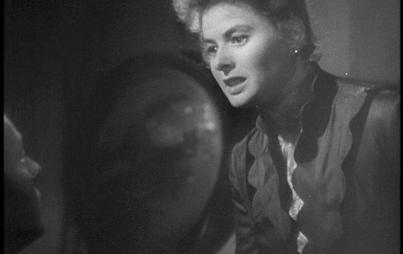
Thinkstock
The NFL does not have a domestic violence problem. That is to say, there is no evidence that the NFL has much of a problem with domestic violence. If you spend some time looking at USA Today’s NFL player arrest database, you’ll see that a lot of instances of the words “rape,” “sexual assault,” “domestic assault,” and “child abuse.” The word “suspended” appears with much less frequency.

What the NFL has, truly, is a public relations problem. Because their decades-long approach of mostly ignoring when their players commit violence against women and children stopped working last year. Because last year the Internet watched that Ray Rice video and started asking a lot of tough questions.
So now the NFL wants to make it right, sort of. At least, they want to be forgiven. Preferably without having to actually make substantial changes to the way they operate. Which, if you’ve ever known an abusive partner, might sound a bit familiar.
Lucky for them, they have a huge platform from which to make this appeal: this Sunday’s Superbowl. This weekend, more than a hundred million people will see this ad:
The ad is chilling. It is gut-wrenching. It is maybe even based on a true story.
But is it any good?
It would be, if its goal was to draw attention to the importance of properly training 911 operators to do more than just take down someone’s address, which it does quite effectively. It is inarguably a great story, and I admit to choking up while watching it. But I don’t think it is going to make women any safer.
Because let’s face facts: If domestic violence is going to be diminished in our lifetime, it’s going to require meaningful challenge to the status quo. And there is no challenge in this ad. If anything, they have somehow managed to give a happy ending to an ad about a woman being brutally beaten by her partner. This happy ending feels like absolution. Viewers are relieved for the 911 dispatcher’s quick thinking, thankful the police are on their way, and not implicated in any way for participating in or perpetuating violence against women.

This ad it portrays violence the way it is portrayed in every TV movie-of-the-week. But most abuse doesn’t start out with holes in the walls and black eyes; much abuse never even gets there. So the majority of abusers will not see their actions reflected in this ad, nor will their victims. And if any victims do feel like they are watching a familiar scene, they’re not really given any indication of what to do next. Should they call 911 and pretend to order a pizza? Probably not now.
The biggest problem with this ad, though, is that it has only two characters: the abuser and the victim. In real life, and in football, there is a huge cast of people enabling and propping up the abuse through inaction and even willful obfuscation. A deft 911 dispatcher can do little to prevent domestic violence when fellow players say nothing, the NFL covers up and downplays abuse, and fans either think women are lying or have it coming.

The ad ends with a title screen: “When it’s hard to talk, it’s up to us to listen.”
Well, that sounds pretty good. Who wouldn’t want to be listened to? But I can’t help feeling like being listened to by the NFL is a lot like being listened to by your abuser’s crummy friend who ends up talking over you to tell you that he can’t really help you but he wishes he could and please don’t think he’s a bad guy.
I want more than listening. I want a commitment from the NFL to put themselves in the line of fire. To use their immeasurable resources and privilege to step between abusers and victims and say “No”. Like Feminista Jones’ call for everyone to join her in asking “You OK, sis?” to women being harassed on the street. Like the men in India’s Bell Bajao campaign, who ring the doorbell to interrupt a neighbour’s tirade against his wife, to make it clear that others can hear and are willing to step in.

The NFL ad, in contrast, asks nothing of men other than to agree that probably it’s pretty bad to beat up your wife so badly that she feels she has to call 911.
I am not fooled by this ad. I grew up in a house with domestic violence, and I know the cycle. I know that at some point, an abuser senses a sea change and starts to panic and brings home flowers.
This PSA is that bouquet of flowers.






